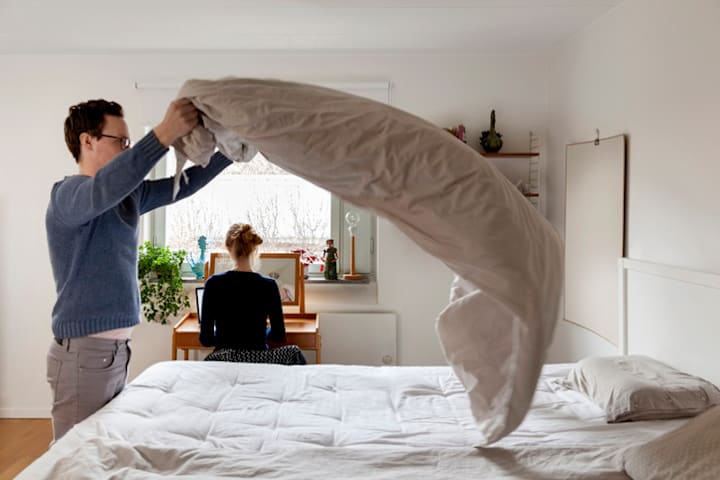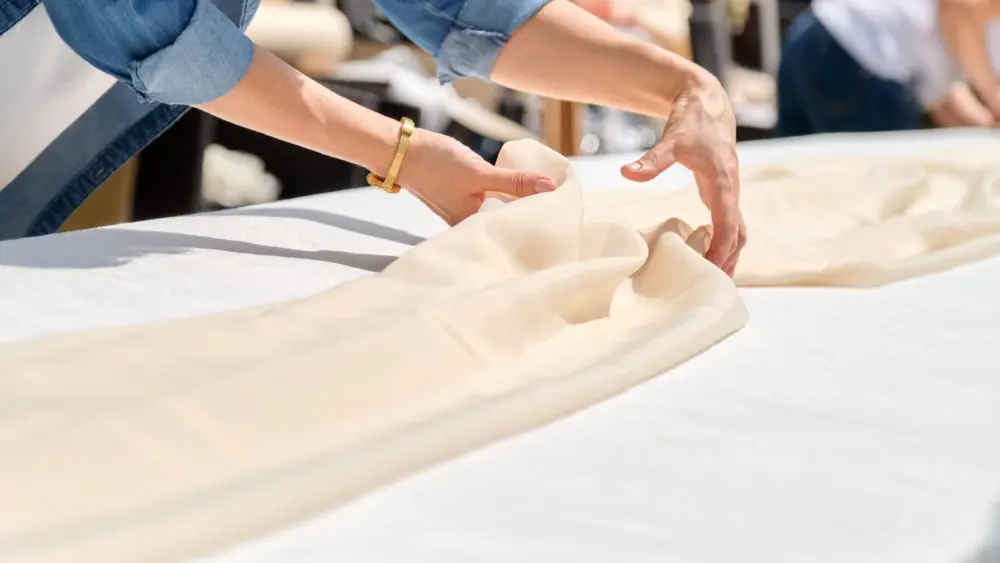Making your bed the moment you get up may feel like the hallmark of a productive morning. However, according to Real Simple, doing so could actually trap moisture, heat, and dust mites (more on those later). The result? A less-than-hygienic sleep environment—and potentially poorer sleep quality.
A Big Tiny Reason to Air Out Your Bedding

While you sleep, your body naturally releases sweat and heat, which get absorbed into your bedding. Sheets, blankets, and even mattresses can retain that moisture, especially during warmer months or if you’re a hot sleeper. When you immediately make the bed, tucking everything in neatly, you trap the effluvia under the covers. That creates a humid, enclosed environment that dust mites love. These microscopic, insect-like creatures feed on dead skin cells and thrive in warm, damp conditions, such as—you guessed it—sweaty sheets and blankets that have been tightly tucked in right after you’ve gotten out of bed.
Additionally, according to the Asthma and Allergy Foundation of America, dust mites are among the most common household allergens, and they can even exacerbate asthma or trigger allergy symptoms in sensitive individuals. A tightly made bed, sealed before moisture has time to evaporate, becomes the perfect breeding ground for them.
The Best Time to Make Your Bed

Instead, many cleaning experts and sleep hygiene professionals recommend pulling back your sheets and letting the bed “breathe” for at least 30 to 60 minutes each morning. As noted by Real Simple, this allows trapped heat and sweat to escape, leaving your bedding drier and less hospitable to mites and bacteria. If possible, open a window or use a fan to promote airflow and speed up the drying process. And it’s not just about dust mites. Damp bedding can also lead to the growth of bacteria, mildew, and odors.
Bottom line: Don’t give up the habit entirely—just delay it a bit. That way, you’ll still get the satisfaction of a tidy room, plus a bed harboring fewer allergens and a better night’s sleep.












